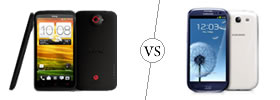Difference between Asus PadFone Infinity and iPad
Key Difference: The Asus Padfone Infinity smartphone is a slick 5-inch full HD 1920x1080, Super IPS+ with Capacitive Multi touch panel and provides approximately 441 ppi density. The device is a bar phone, with curved corners giving it a similar look to the ‘iPhone’ and ‘HTC One’. The Asus Padfone Infinity Dock is basically the 10-inch tablet shell that allows users to dock their phone into the tablet by sliding it into a slick slot on the back. iPads have the screen size of 9.7 inches with multi-touch display. iPads are intended as devices for a multimedia experience, reading e-books, watching movies, listening to music, playing games, browsing the Internet, or retrieving e-mail. The company is currently on the iPad fourth-generation, also known as just plain iPad or iPad 4.
 Asus has announced its latest phone and tablet in the Padfone series, knighted the Asus Padfone Infinity. The original Asus Padfone did not reach the Western Shores but the company states that the Padfone Infinity is set for world-wide launch in the second quarter of 2013. Similar to the original Padfone, the Padfone Infinity is available just as smartphone or along with a tablet dock that allows seamless transition between phone and tablet needs. The Padfone Infinity is a pretty intriguing concept that allows the phone to dock on the tablet, which powers the tablet and transfers all the data on the tablet for use. However, without the phone the tablet is just a shell without any ‘brain’ of its own. The phone/tablet is set to provide serious competition to rivals Sony Xperia Z Tab, iPad 4 and Samsung Galaxy Tab. Let’s cover its features separately.
Asus has announced its latest phone and tablet in the Padfone series, knighted the Asus Padfone Infinity. The original Asus Padfone did not reach the Western Shores but the company states that the Padfone Infinity is set for world-wide launch in the second quarter of 2013. Similar to the original Padfone, the Padfone Infinity is available just as smartphone or along with a tablet dock that allows seamless transition between phone and tablet needs. The Padfone Infinity is a pretty intriguing concept that allows the phone to dock on the tablet, which powers the tablet and transfers all the data on the tablet for use. However, without the phone the tablet is just a shell without any ‘brain’ of its own. The phone/tablet is set to provide serious competition to rivals Sony Xperia Z Tab, iPad 4 and Samsung Galaxy Tab. Let’s cover its features separately.
The Asus Padfone Infinity smartphone is a slick 5-inch full HD 1920x1080, Super IPS+ with Capacitive Multi touch panel and provides approximately 441 ppi density, making the screen visibly sharp, crisp and clear. The device is a bar phone, with curved corners giving it a similar look to the ‘iPhone’ and ‘HTC One’. The phone has a sleek metallic chassis, with a silver brushed look on the back. The phone is powered by the latest 1.7GHz quad-core Krait Qualcomm Snapdragon 600, providing fast responsiveness from the device. It offers the latest Android v4.2 Jelly Bean. The phone has a 2GB RAM and is available with 32/64 GB of internal storage capacity. The phone houses a 13MP primary camera and a 2MP secondary camera, with HD recording capability. The massive battery power allows the phone to provide up to 19 hours of 3G talk time. The company also introduced a bunch of new features such as Asus Echo, SuperNote, ASUS Story, Instant Dictionary and two years’ free Cloud Storage with 50GB ASUS WebStorage. The Asus Echo is the newest personal assistant, similar to Siri that allows the user to activate a number of features (search contacts, make calls, pick up incoming calls, activate the camera shutter for self-portraits, set alarms, change settings, etc) on the phone using voice commands. The new SuperNote supports real-time handwriting to text conversion and is sensitive enough to accurately translate from handwriting to text. Asus Story allows users to create albums and story lines, while Instant Dictionary allows users to translate words, phrases and sentences in emails, web pages or apps.
The Asus Padfone Infinity Dock is basically the tablet shell that allows users to dock their phone into the tablet by sliding it into a slick slot on the back. The slot comes with rubber gromits that ensures that the phone locks into place and does not slide out and fall. When the phone is docked on the tablet, the tablet and the phone synchronize automatically and the apps that were on the screen of the phone automatically re-sizes itself and pops up on the tablet screen. The tablet sports a 10.1 Full HD 1920x1080, Super IPS+ with Capacitive Multi touch panel, similar to the phone, providing a clear and detailed picture on the tablet. The screen on both, the phone and the tablet, have a Corning Gorilla Glass covering. The tablet does not have a processor or anything such hardware on it. It does offer a few advantages to the phone. The tablet houses a 1MP front camera for video calls. The tablet is also capable to output 1080 Full HD video via Micro-USB compatible MyDP interface. The device also has a dialer and is able to accept and make phone calls and send text messages. The phone and the tablet have speakers have the ASUS Audio Wizard audio enhancement providing rich audio experience. The battery as a massive 5000 mAh Li-Polymer, that enhances the battery power of the phone allowing up to 40 hours of 3G talk time. The tablet also has the power to charge the phone three times with a full battery. The tablet starts charging the battery of the phone, when the phone is docked into the tablet.
The high-end phone/tablet hybrid comes with a high-end price of EUR 999 and should be around US$ 1300 when it finally reaches the States. The main purpose of such a hybrid is so that people can use one data plan and it eliminates the need for manually synchronizing the tablet to phone and vice-versa. The phone has also been criticized for the lack of the keyboard, which was one of the features available in the original Padfone. Will the phone be a massive success or failure will be seen when the phone finally becomes available world-wide.
 Apple originally launched iPad in 2010. Its launch started a new trend for tablets. iPad is a type of tablet PC, which was originally promoted as a cross between an Apple iPhone and iPod Touch with added capabilities of computing. However, it is not meant to be a replacement for desktop personal computers or laptops. iPads have computational properties that can do some tasks as laptops but not all. The company is currently on the iPad fourth-generation, also known as just plain iPad or iPad 4.
Apple originally launched iPad in 2010. Its launch started a new trend for tablets. iPad is a type of tablet PC, which was originally promoted as a cross between an Apple iPhone and iPod Touch with added capabilities of computing. However, it is not meant to be a replacement for desktop personal computers or laptops. iPads have computational properties that can do some tasks as laptops but not all. The company is currently on the iPad fourth-generation, also known as just plain iPad or iPad 4.
iPads have the screen size of 9.7 inches with multi-touch display. iPads are intended as devices for a multimedia experience, reading e-books, watching movies, listening to music, playing games, browsing the Internet, or retrieving e-mail. It has a software structure more like that of a mobile phone. It also has a very simple user interface, which can even be easily operated by children. iPads are available with a memory capacity of 16 GB, 32 GB, 64 GB and 128 GB.
The iPad is available in models supporting only Wi-Fi, or 3G and Wi-Fi. However, iPad lacks Flash, software that a number of websites use to display content. So, iPad cannot load these pages. This limits the web surfing experience. The fourth-gen iPad is similar to its predecessors, while it still has two minor and one major upgrade on it. The 30-pin connector has been upgraded to a smaller Lightning connector, while the front camera has been upgraded to the HD Status. The major upgrade is the new A6X processor that replaced the A5X processor on the third-gen. The iPad Mini version is a smaller and thinner version of the iPad.
The information for the detailed table about the two phones has been taken from the Asus website, Apple website and GSMArena.com.
|
|
Asus Padfone Infinity |
iPad (4th generation) |
|
Launch Date |
Expected Release Q2/2013 |
November 2, 2012 |
|
Company |
Asus |
Apple |
|
Size |
Phone:143.5 x 72.8 x 8.9 mm Pad: 264.6 x 181.6 x 10.6 mm |
241.2 x 185.7 x 9.4 mm (9.50 x 7.31 x 0.37 in) |
|
Display |
Phone: 5-inches, Full HD 1920x1080, Super IPS+ with Capacitive Multi touch panel Pad: 10.1-inches, Full HD 1920x1080, Super IPS+ with Capacitive Multi touch panel |
LED-backlit IPS LCD, capacitive touchscreen, 16M colors |
|
Screen |
Phone: 1080 x 1920 pixels (~441 ppi pixel density) Pad: 1920x1080 pixels (~441 ppi pixel density) |
1536 x 2048 pixels, 9.7 inches (~264 ppi pixel density) |
|
Protection |
Corning Gorilla Glass on both the phone and the pad. |
Scratch-resistant glass, oleophobic coating |
|
Weight |
Phone: 141 grams Pad: 530 grams |
652g (1.44 lb) 662g (1.46 lb) for 3G model |
|
2G Network |
GSM 850 / 900 / 1800 / 1900 |
(Wi-Fi + Cellular Model) GSM 850 / 900 / 1800 / 1900 - A1459/ A1460 (Wi-Fi + Cellular Model) CDMA 800 / 1900 / 2100 - A1460 |
|
3G Network |
HSDPA 900 / 2100 |
(Wi-Fi + Cellular Model) HSDPA 850 / 900 / 1900 / 2100 - A1459/ A1460 (Wi-Fi + Cellular Model) CDMA2000 1xEV-DO - A1460 |
|
4G Network |
LTE 800 / 1800 / 2600 / 2100 |
(Wi-Fi + Cellular Model) LTE 700 MHz Class 17 / 1700 / 2100 - A1459 (Wi-Fi + Cellular Model) LTE 700 / 850 / 1800 / 1900 / 2100 - A1460 |
|
GUI |
Asus' UI |
iUI |
|
CPU speed |
1.7GHz quad-core Krait Qualcomm Snapdragon 600 |
Dual-core 1.4 GHz |
|
GPU |
Adreno 320 |
PowerVR SGX554MP4 (quad-core graphics) |
|
OS |
Android v4.2 (Jelly Bean) |
iOS 6 |
|
Chipset |
Qualcomm APQ8064T Snapdragon 600 |
Apple A6X |
|
RAM |
2 GB |
1 GB RAM |
|
SIM Size |
nanoSIM |
Micro-SIM for 3G model |
|
Internal Memory |
32/64 GB |
16/32/64/128 GB |
|
Expandable Memory |
N/A |
None |
|
Sensors |
G-Sensor, E-compass, Gyroscope, Proximity, Light Sensor |
Accelerometer, Gyroscope, compass |
|
Connectivity |
GPRS Class 10, EDGE Class 10, LTE, Bluetooth, Wi-Fi, USB, Wi-Fi hotspot. |
Wi-Fi + Cellular Model
Wi-Fi + Cellular Model (MM)
Data only All Models 802.11a/b/g/n Wi-Fi (802.11n 2.4GHz and 5GHz) Bluetooth 4.0 wireless technology |
|
Data |
GPRS, EDGE, WLAN, Bluetooth, NFC, USB, USB Host. |
WiFi, USB GPRS, EDGE, LTE for Wi-Fi + Cellular Model |
|
Speed |
DC-HSPA+, 42 Mbps; HSDPA, 21 Mbps; HSUPA, 5.76 Mbps; LTE, Cat3, 50 Mbps UL, 100 Mbps DL |
DC-HSDPA, 42 Mbps; HSDPA, 21 Mbps; HSUPA, 5.76 Mbps, LTE, 73 Mbps; EV-DO Rev. A, up to 3.1 Mbps |
|
WLAN |
Wi-Fi 802.11 a/ac/b/g/n, Wi-Fi Direct, dual-band, Wi-Fi hotspot |
Wi-Fi 802.11 a/b/g/n, dual-band, Wi-Fi hotspot |
|
Bluetooth |
Bluetooth v4.0 with A2DP |
Bluetooth v4.0 with A2DP |
|
USB |
microUSB v2.0 (MHL), USB Host |
USB v2.0, special lightening charger |
|
Primary Camera |
13 MP, 4128 x 3096 pixels, autofocus camera |
5 MP, 2592 x 1944 pixels, autofocus |
|
Secondary Camera |
Phone: 2 MP 1080p@30fps camera Pad: 1MP front camera |
Yes, 1.2 MP, 720p@30fps, face detection, FaceTime over Wi-Fi + Cellular |
|
Video |
1080p@30fps |
1080p@30fps, video stabilization |
|
Camera Features |
LED flash Geo-tagging Touch focus Face detection |
Touch focus Geo-tagging Face detection |
|
Sound Enhancement |
ASUS Audio Wizard ASUS Sonicmaster |
No |
|
Audio supported formats |
MP3/3GP/AAC/AAC+ |
AAC (8 to 320 Kbps), Protected AAC (from iTunes Store), HE-AAC, MP3 (8 to 320 Kbps), MP3 VBR, Audible (formats 2, 3, 4, Audible Enhanced Audio, AAX and AAX+), Apple Lossless, AIFF and WAV |
|
Video supported formats |
MP4/H.264/H.263 player |
H.264 video up to 1080p, 30 frames per second, High Profile level 4.1 with AAC-LC audio up to 160 Kbps, 48kHz, stereo audio in .m4v, .mp4 and .mov file formats; MPEG-4 video up to 2.5 Mbps, 640x480 pixels, 30 frames per second, Simple Profile with AAC-LC audio up to 160 Kbps per channel, 48kHz, stereo audio in .m4v, .mp4 and .mov file formats; Motion JPEG (M-JPEG) up to 35 Mbps, 1280x720 pixels, 30 frames per second, audio in ulaw, PCM stereo audio in .avi file format |
|
Battery Capacity |
Phone: 2400 mAh Li-Polymer Pad: 5000 mAh Li-Polymer |
Built-in 42.5-watt-hour rechargeable lithium-polymer battery |
|
Talktime |
Phone: 3G: 19 hours Pad: 3G: 40 hours |
- |
|
Standby Time |
Phone: 3G: 410 hours Pad: 3G: 920 hours |
- |
|
Available Colors |
Titanium Gray, Champagne Gold, Hot Pink |
Black, White |
|
Messaging |
SMS(threaded view), MMS, Email, Push Email, IM |
iMessage, Email, Push Email, IM |
|
Browser |
HTML5 |
HTML (Safari) |
|
Radio |
FM radio |
No |
|
GPS |
A-GPS & GLONASS |
with A-GPS support and GLONASS |
|
Java |
Yes, via Java MIDP emulator |
None |
|
Additional Features |
|
|
Image Courtesy: asus.com, pluggedin.co.uk









Add new comment